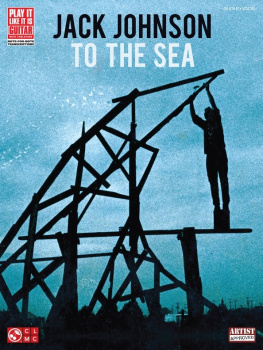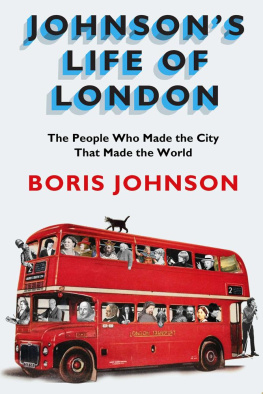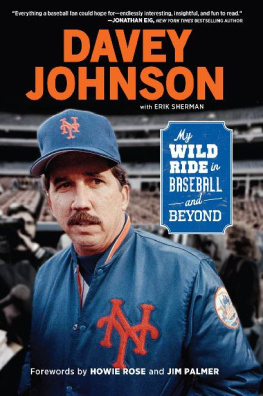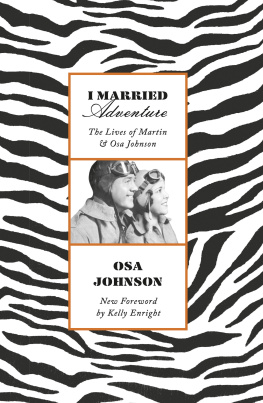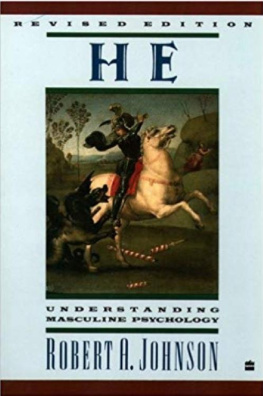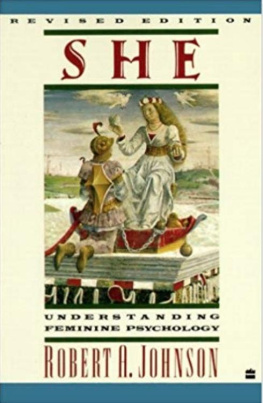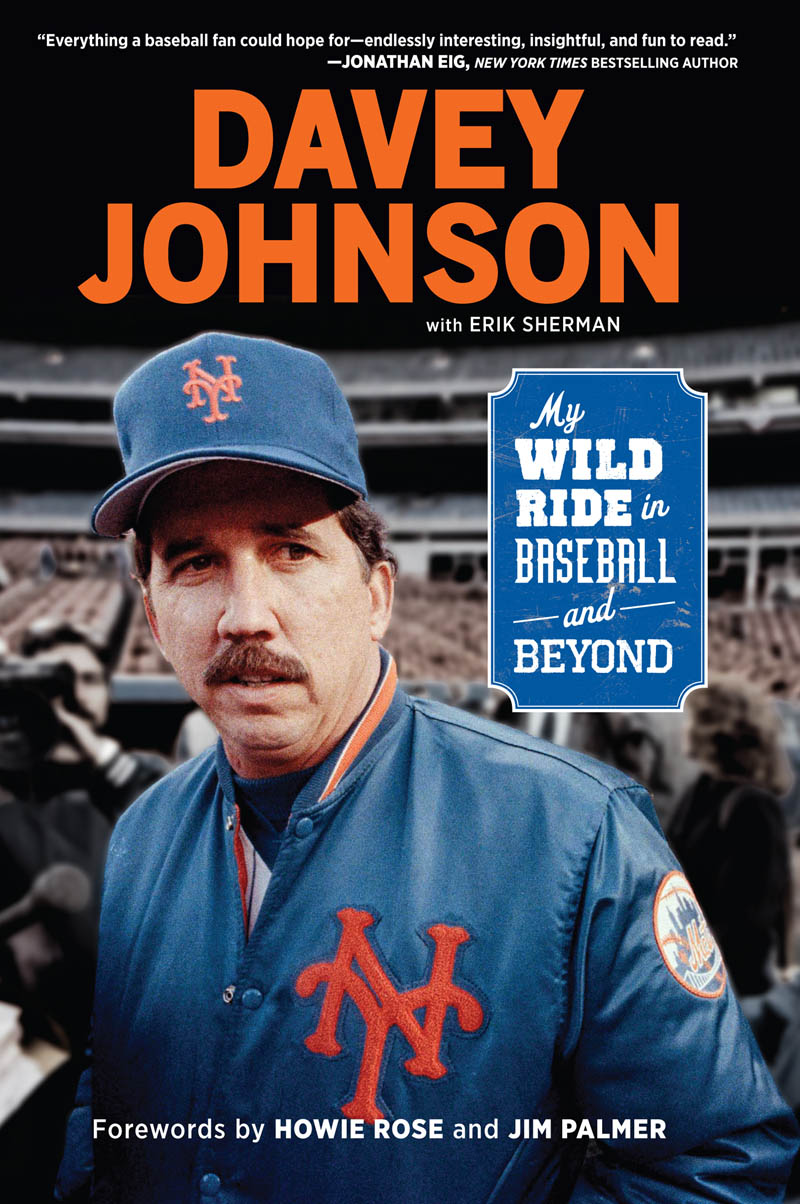
Praise for Davey Johnson: My Wild Ride in Baseball and Beyond
I played in New York for Davey for six terrific seasons and consider him a valued friend. He has a great story to tell. I remember his Rolaids commercials during his tenure as Mets manager. I guess dealing with our group gave him ulcersbut we loved playing for him!
Keith Hernandez
Five-time All-Star and 1979 National League Co Most Valuable Player
11-time National League Gold Glove first baseman
Two-time World Series Champion and New York Mets captain
SNY and WPIX Mets commentator
I was very close to Daveyhe was a good friend. During my 10 years as manager of the Cardinals, it seemed like we were fighting with Daveys Mets every year for the pennant. The Cubs-Cardinals games may have always packed the house, but the biggest gamesthe biggest rivalrywas always with the Mets.
Whitey Herzog
2010 Baseball Hall of Fame inductee
1982 World Series Champion and Major League Manager of the Year
1985 National League Manager of the Year
Member of both the Cardinals and Royals Halls of Fame
Davey Johnson is a rare Renaissance man in sports, blessed with intelligence and curiosity extending well beyond the white lines. He was into his own form of analytics long before it became an influential trend, as a terrific player absorbing everything he would put to use as an equally successful manager. When, after the 1986 World Series, I felt compelled to apologize for being so rough on him in the New York Post , his response showed how he endured so well: Dont worry about it, Lyle. You have a job to do; I know that. No hard feelings. A graceful guy with a sense of humor and the ability to see the big picture.
Lyle Spencer
Major League Baseball columnist
Author of Fortitude: The Exemplary Life of Jackie Robinson
Davey earned my respect as one of the truly great baseball people Ive had the pleasure of playing for. A players manager and good friend, you have to appreciate all he has accomplished in the game.
Mookie Wilson
1986 Mets World Series hero
Member of the Mets Hall of Fame
Currently Mets team ambassador and roving instructor
Davey Johnson is one of the reasons they call it the big leagues. All through his career as a player, manager, and ambassador of our game, hes got to be in the top tier.
Steve Blass
1971 World Series hero and All-Star pitcher
Longtime Pittsburgh Pirates broadcaster
Author of Steve Blass: A Pirate for Life
I have always been intrigued by Daveys knowledge of baseballespecially hitting. When we were teammates in 73 with the Braves, Davey, Hank Aaron, and Darrell Evans all hit 40 or more home runs and I chipped in with 21. I hit in front of Davey, and when we were in the on-deck circle, he would tell me what he was looking for and how he wanted to set up the pitcherwhich I didnt really understand until later. But the thing I remember most about Davey was when wed go out, he wasnt ashamed to dance! He was proud of the fact he could dance! Hes always been the same. Thats the thing I like about Daveyhis consistency and his personality.
Dusty Baker
Three-time National League Manager of the Year
Member of the 1981 World Champion Los Angeles Dodgers
Davey Johnson is one of baseballs great managers and great storytellersthe kind of guy with whom youd love to drink beer and watch a game. His book is everything a baseball fan could hope forendlessly interesting, insightful, and fun to read. With or without beer, youll enjoy every moment in Johnsons company.
Jonathan Eig
New York Times bestselling author of Ali: A Life
This book is dedicated to my children, Dawn and Davey; my stepchildren, Jeremy and Ellie; my brother, Fred, and sisters, Kris and Patty; my wife, Susan; and all the teams I was fortunate enough to play for and manage, as well as in loving memory of my beloved Andrea and Jake and my parents, Florence and Fred.
Contents
Foreword by Howie Rose
In October 1983, about the only thing that most New York Mets fans thought of when they heard the name Davey Johnson was that he had made the final out of the 1969 World Series. Of course, they probably remembered that he had an outstanding major league playing career with the Baltimore Orioles and a few other teams, and perhaps that he was a successful manager in the Mets farm system, but for the most part he was a relatively anonymous baseball figure who probably didnt excite the fan base much when it was announced that he had been hired to manage the floundering ballclub.
That all changed with one sentence.
During the press conference to announce the move, Daveys first remark was, I would like to thank [general manager] Frank Cashen for being smart enough to hire me.
Thats not how managers spoke when they were hired, particularly when it was their first big-league job. They usually made boring remarks dripping with humility, speaking generically and exciting no one. We learned on that fall day that Davey Johnson is neither boring nor humble, and for the next six and a half years the New York Mets, and a relatively young broadcaster, were much better for it.
I was that broadcaster, although I didnt work with Davey on an everyday basis until 1987, the year after Johnson managed the Mets to the World Championship; having turned that franchise completely around almost overnight. I had been hired to host an extensive pre- and postgame show on the Mets flagship radio station, WHN, which included a daily interview with the manager. Although I had been a constant in the Mets clubhouse as a reporter for other New York radio stations and had regularly asked questions of Davey before and after games, he didnt really know much about me. Our on-air partnership was something of a shotgun marriage, and early on there were a couple of times I thought he might use one on me.
Most pregame shows with major league managers are fluff pieces that serve no real purpose. The skipper is rarely challenged by his interviewer, and the show is little more than a promotional house organ for the ballclub. I knew that this would never work in New York, and I needed Davey to be on board with me. The only way the show would have any real value to the listener would be if the manager was asked the same questions on the air as the newspaper beat writers would ask him following a game. Anything else wouldnt be transparent.
Early on, this didnt seem to be a problem. The team played reasonably well, but after we taped a show following a tough loss, Davey became irritated at my line of questioning. He said that he didnt feel that he had to defend his strategic moves on his own radio show, but I stood my ground and he reluctantly acquiesced. However reluctant he might have been, it seemed that a light bulb went off in his head. Because listeners could call into the postgame show and were often critical of Daveys strategy, he came to the realization that he could use our pregame interviews as a platform to explain his strategy as well as to disarm the audience and occasionally send messages to his players or the front office at the same time.
My favorite example of this was early in that 1987 season. Mets reliever Roger McDowell began the season on the disabled list, and when he was ready to rejoin the ballclub, whatever corresponding move Cashen made to get Roger onto the active roster did not sit well with Davey. I started the show by saying, Davey, youre getting Roger McDowell back tonight; what do you think his immediate impact will be on the team?


